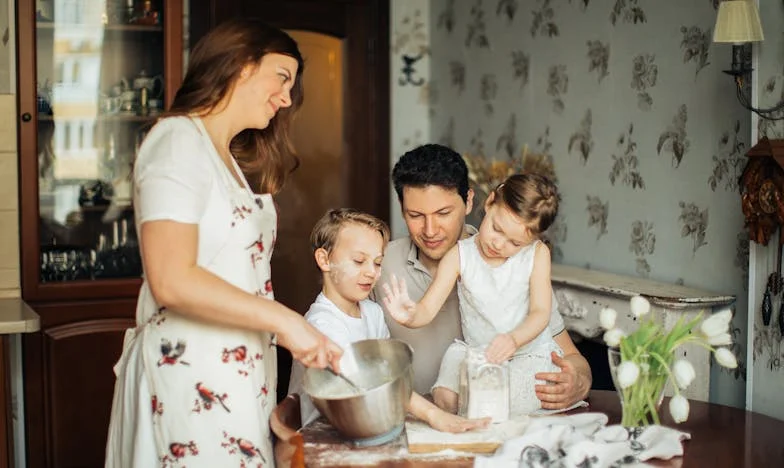When She Walked Out: A Father’s Fight for Family
“Where are you going, Lauren?” My voice trembled as I stood in the doorway, holding our youngest, Ethan, whose sticky fingers clung to my shirt. Lauren didn’t turn around. She just zipped up her suitcase, her face set in that familiar, distant frown.
“I can’t do this anymore, Mike.” She barely whispered it, but I caught every syllable. Our daughter, Emily, peeked around the corner, her wide eyes darting from me to her mom.
That was the night my world split in two. I had always been the one to see things through—valedictorian in high school, the steady rock for my parents after Dad’s heart attack, and, when Lauren and I married, I promised myself I’d be the anchor for my own family. But anchors can snap, and that night, ours did.
Lauren left, and I stayed. The next morning, I made pancakes, even though I burned the first batch. Ethan giggled. Emily didn’t touch hers. I could see the question in her eyes: Is Mom coming back?
Days turned into weeks. The house felt hollow, every room echoing with memories of Lauren’s laughter and late-night arguments. I’d always believed hard work could fix anything. I juggled my job as a project manager—logging in at 5 a.m. so I could be home when the kids got off the bus. I learned how to do Emily’s hair before school and how to coax Ethan into eating his vegetables. I tried to fill the space Lauren left, but some spaces refuse to be filled.
“Why did Mommy leave?” Emily asked me one night, her voice small, clutching her stuffed bear.
I hesitated. “Sometimes adults get tired, Em. Sometimes, they need a break.”
She didn’t answer. Instead, she curled into my lap and cried, and I held her, wishing I had better words.
Lauren called once a week. The conversations were stilted, strained. She’d ask about the kids, never about me. Sometimes, I’d hear traffic in the background—her new life moving, fast, without us.
My parents, old-fashioned as they were, tried to help. Mom brought over casseroles and advice I didn’t ask for. Dad just patted my back, silent, his own disappointment heavy in the air. At Thanksgiving, Lauren didn’t come. Emily set an extra plate anyway.
The hardest part wasn’t the chores or the loneliness—it was the judgment. At soccer games, the other moms whispered. At work, my boss, Mr. Carter, pulled me aside. “You’re distracted, Mike. Is everything okay at home?”
I wanted to scream that I was holding it together with duct tape and desperation.
One night, after I tucked the kids in, I stood at the kitchen sink, scrubbing a pan that would never come clean, and let myself cry for the first time. The weight of being both parents, of never having a break, crashed over me. I thought about Lauren—not with anger, but with a raw, aching envy. She’d chosen herself. I couldn’t. My kids needed me.
Things got worse before they got better. Emily started acting out at school. The principal called me in: “She’s struggling, Mike. Maybe she needs counseling.” I nodded, feeling like a failure.
We started therapy as a family. Emily drew pictures of our house with a hole in the roof. Ethan made up stories about a superhero dad who saves the day. The therapist, Dr. Moore, told me to be patient—with them, and with myself.
Little by little, we built new routines. Friday pizza nights, movie marathons, hiking on Saturdays. Lauren visited once, months later. She and the kids went to the park. I watched from the window, hands shaking. When Emily came home, she hugged me so tightly I thought I’d break.
One evening, Emily and I sat on the porch, watching fireflies. She asked, “Do you think Mom misses us?”
I swallowed hard. “I think she does, in her own way. But I know I’d be lost without you.”
She smiled then, small but real, and leaned her head on my shoulder.
Years have passed now. I’m not the same man I was when Lauren left. I’ve learned that strength isn’t about never breaking—it’s about piecing yourself back together, every single day, for the people you love. Emily is thriving in high school. Ethan’s obsessed with baseball. Sometimes, I catch myself laughing and realize it’s been weeks since I last thought about Lauren.
But at night, when the house is quiet and the kids are asleep, I still wonder: Did I do enough? Could I ever be enough for them—both mother and father, anchor and sail? Or is love, in the end, just a patch on the holes life tears through us?
What do you think? Is it possible to make a broken family whole again, or do we just learn to live with the cracks?
